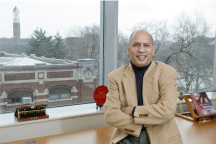The full-day workshop will take place on 15th April, 2019. The agenda includes presentations on peer-reviewed workshop papers, a keynote talk by Prof Aditya Mathur, and a panel session on hot topics and challenges for cyber-physical systems security and resilience.
Workshop Agenda
| Time | Session |
|---|---|
| 07:00 - 08:30 | Registration |
| 08:45 - 10:00 |
Session 1
Workshop Welcome Keynote Talk: Challenges in Avoiding Process Anomalies in Critical Infrastructure (Slides) |
| 10:00 - 10:30 | Coffee break |
| 10:30 - 12:00 |
Session 2 (Chair: I. Shames, University of Melbourne)
Edge Device Security for Critical Cyber Physical Systems Intrusion Detection of Networked Cyber-Physical Systems via Three-level Deep Packet Inspection (Slides) Secure and Resilient Rollout of Software Services in the Smart Grid (Slides) |
| 12:00 - 13:30 | Lunch break |
| 13:30 - 15:00 |
Session 3 (Chair: P. Smith, AIT)
Panel Session: Hot Topics and Future Trends for CPS Security and Resilience Two-Way Coding and Attack Decoupling in Control Systems Under Injection Attacks State Consistencies for Cyber-Physical System Recovery (Slides) |
| 15:00 - 15:30 | Coffee break |
| 15:30 - 17:00 |
Session 4 (Chair: H. Sandberg, KTH Royal Institute of Technology)
Synthesizing Stealthy Reprogramming Attacks on Cardiac Devices (Slides) Security of Networked Control Systems: A Game-Theoretic Approach (Slides) Digital Implementation of Homomorphically Encrypted Feedback Control for Cyber-Physical Systems (Slides) |
| 17:00 | Workshop close |
Keynote Talk
Challenges in Avoiding Process Anomalies in Critical Infrastructure
Download the presentation slides

|
Aditya Mathur Professor of Computer Science, Purdue University Professor and Founding Head of Pillar Information Systems Technology and Design Center Director, iTrust, Singapore University of Technology and Design |
Abstract: Industrial Control Systems (ICS) are found in critical infrastructure (CI) such as systems for water treatment, water distribution, power generation and distribution, and mass transportation. Prevention, detection, and post-detection control are three key elements of secure ICS design aimed at reliable, safe, and secure operation of a CI. An attacker, by disturbing the normal operation of an ICS, could move the process under control into an anomalous state. Once in such a state, the process can lead to component damage, or even plant shutdown, as has been observed in widely reported attacks on various CI. In this talk we focus on the open question “How, and to what extent, can we avoid such process anomalies in the presence of cyber-physical attacks?” In an attempt to answer this question, we examine the mechanics of effecting such a move and design and experiment with an architecture and methods to prevent the process from becoming anomalous.
Biography: Aditya Mathur is professor of Computer Science at Purdue University. He is also professor and founding head of the Information Systems Technology and Design pillar at the Singapore University of Technology and Design (SUTD), and Center Director of iTrust – a center for research in cyber security. Aditya’s recent research contributions focus on the design of secure public infrastructure. As Center Director Aditya manages a 50+ group of researchers in cyber security and has led the design and operationalization of three fully operational research testbeds for water treatment, water distribution, and power generation, transmission, and distribution. Aditya is a co-inventor of Distributed Attack Detection (DAD) that makes use of invariants derived from plant design for detecting anomalies in process behavior that may arise due to cyber or physical attacks.
